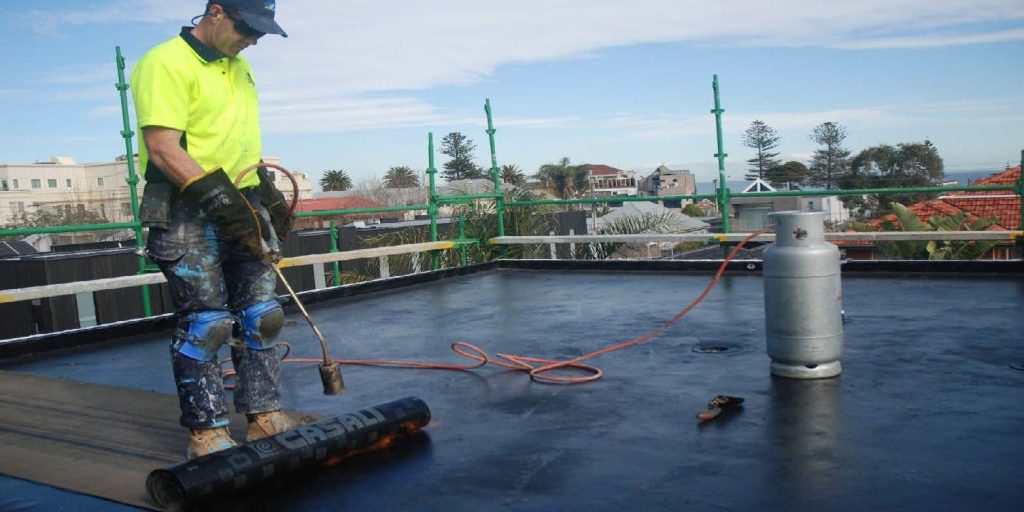Best Roof Waterproofing company in South Africa
RoofPro provides affordable and professional roof waterproofing services across South Africa
Our Services
RoofPro is one of the top waterproofing companies in South Africa providing the most affordable roof waterproofing across South Africa.

RoofPro as a trusted and recognized roof waterproofing company specializes in residential ,commercial and industrial roof waterproofing using a variety of different methods like Torch on waterproofing.
Roof waterproofing is an essential practice to prevent water infiltration into the building’s interior, ensuring the structure’s durability, safety, and comfort. It involves the application of materials or treatments to a roof surface, creating a barrier that prevents water from entering the building. Proper waterproofing is vital, as water leakage can lead to mold growth, structural damage, and higher maintenance costs.
Why is Roof Waterproofing Important?
Prevents Water Damage: Roofs are exposed to harsh weather conditions such as heavy rain, snow, and ice. Over time, water can seep through small cracks, seams, or unprotected areas, leading to leaks inside the building. This can cause damage to ceilings, walls, electrical systems, and furniture.
Increases Longevity of the Roof: Waterproofing protects the roofing materials from deteriorating due to prolonged exposure to moisture. This extends the lifespan of the roof, reducing the need for frequent repairs or replacement.
Energy Efficiency: A well-sealed, waterproofed roof helps to maintain indoor temperature by preventing moisture from entering. This can improve insulation, making the building more energy-efficient and reducing heating or cooling costs.
Mold and Mildew Prevention: Water leaks can create damp conditions conducive to the growth of mold and mildew. These can damage the structure and compromise the health of the building’s occupants. Waterproofing eliminates this risk.
Protects Building Foundation: Water can infiltrate the roof and trickle down into the walls and foundation. Over time, this can weaken the foundation and lead to major structural issues. Waterproofing prevents such damage.
Methods of Roof Waterproofing
There are several methods to waterproof a roof, each suited for specific roofing types, environmental conditions, and building requirements. Here are some popular techniques:
Liquid Waterproofing Membrane (LWM): Liquid-applied membranes are one of the most common waterproofing methods. These liquid coatings form a seamless, flexible layer over the roof surface, which prevents water penetration. The liquid coating is applied by brush, roller, or spray, and it hardens to form a durable waterproof layer.
- Advantages: Seamless, flexible, and easy to apply on complex roof shapes. It adapts to any surface, ensuring full coverage.
- Disadvantages: Requires periodic maintenance and reapplication.
Bituminous Waterproofing: This method uses bitumen-based products, such as asphalt or tar, to create a waterproof layer. Bituminous membranes can be applied as a hot or cold liquid. The process involves applying the bituminous material on the roof surface and then laying a layer of felt or fiberglass.
- Advantages: Effective in preventing water penetration, widely used for flat roofs, and can be applied in various weather conditions.
- Disadvantages: Requires time to cure and can be affected by extreme temperatures.
EPDM (Ethylene Propylene Diene Monomer) Membranes: EPDM is a synthetic rubber membrane known for its high resistance to UV rays, ozone, and extreme weather conditions. It is often used for commercial roofs due to its long lifespan and strong waterproofing abilities.
- Advantages: Durable, UV-resistant, and flexible. It can withstand harsh environmental conditions.
- Disadvantages: Expensive compared to some other waterproofing options.
Polyurethane Liquid Membrane: This method uses a liquid polyurethane product to create a seamless, flexible waterproof layer. It is suitable for both flat and sloped roofs.
- Advantages: Provides excellent resistance to UV rays, temperature changes, and weathering. It is highly durable and elastic.
- Disadvantages: Expensive and requires professional installation.
Cementitious Waterproofing: Cementitious waterproofing is a simpler, less expensive method. It involves mixing special cement-based compounds that can be applied to the roof surface. These compounds form a hard, waterproof layer that prevents water from entering.
- Advantages: Easy to apply, low cost, and effective for specific areas prone to leakage.
- Disadvantages: Less flexible and can crack over time, requiring periodic maintenance.
Torch-on Membranes: These are bitumen-based membranes that are applied by heating with a torch, creating a strong bond between the membrane and the roof surface. Torch-on membranes are durable and provide excellent waterproofing protection.
- Advantages: Strong and durable, excellent resistance to weathering, and can be used in various conditions.
- Disadvantages: Requires specialized equipment and trained professionals for proper installation.
Benefits of Roof Waterproofing
Cost-Effectiveness: Although initial waterproofing can be an investment, it saves on long-term repair costs by preventing water damage, mold growth, and deterioration of roofing materials.
Improved Aesthetic Appeal: Waterproofing helps maintain the visual integrity of the roof and the overall building, preventing discoloration, staining, and mold growth.
Safety: Roof leaks can pose safety hazards, especially in buildings with electrical wiring. Waterproofing reduces the risk of electric shocks and fires caused by water infiltration.
Environmental Protection: Preventing water leaks ensures that harmful elements like mold and mildew are kept at bay, protecting the indoor environment and enhancing occupant health.
Increased Property Value: A well-maintained roof that is properly waterproofed increases the resale value of the property by preventing potential water-related damages.
Conclusion
Roof waterproofing is a crucial aspect of building maintenance that protects the structure from water damage, extends the lifespan of the roof, and ensures the safety and comfort of its occupants. By choosing the right waterproofing method based on the roof type and environmental conditions, homeowners and property managers can avoid costly repairs and increase the building’s overall value and sustainability. Regular inspections and timely maintenance of the waterproofing system can further enhance its effectiveness and longevity.
For all your roofing and painting needs
Schedule An Appointment With Us
Our qualified technicians and experts can schedule a site visit to assess your overall building and roofing before giving you a comprehensive quote
Roof waterproofing in Gauteng Pretoria Suburbs
Roof Waterproofing in Gauteng East Rand Boksburg Surbubs
Roofing Waterproofing in Gauteng Vaal area suburbs
